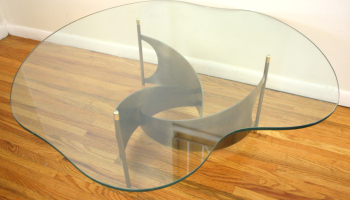How long should windows last? This will vary from one homeowner to another, but the average lifespan of new, quality windows according to many window design experts is 15 to 20 years. After that time, you should think about installing a replacement. Most suppliers that produce vinyl windows often offer a lifetime warranty of 20 to 25 years, which is the general answer to how many years do windows last.
How Many Years Do Windows Last?
So, how many years do windows last? Windows usually last anywhere from 15 to 20 years.
How Much Does it Cost to Replace Home Windows?
The cost of residential windows replacement depends on the material used. Wood windows are more costly than vinyl ones. For the former, expect to shell out at least $800 up to $1,000 for each installation. Double-hung and double-pane vinyl windows of standard size would cost between $450 to $600 for every installation.
Is Replacing Windows Worth It?
While there are many homeowners who think replacing windows is just a liability, remember that doing so is a valuable investment that is worth the dollars you will spend. With good, quality window replacements, you can regain about 70 to 80 percent of your expenses on the market value of your home. For instance, if the replacement cost of your windows is $500, expect an increase in your house’s value by at least $350.
How to Tell if My Windows Need Replacement?
There are pretty obvious signs that clearly tell when to replace windows. These signs can indicate faulty seals, poor or incorrect installation, water infiltration, or old age. You should consider replacing your windows if:
- You hear a lot of noise from the outside.
- You feel a breeze or draft while the windows are closed.
- You have difficulty opening, closing, or locking your windows.
- You notice your windows are moisture and frosting between the glass layers. You also notice that your blinds or window frames are warping.
- Window frames are chipped, soft, or water-damaged.
Why Should I Replace My Windows?
Replacing failing windows with energy-efficient ones can help you save dollars each month by lowering your cooling and heating expenses. New, quality windows with improved lock systems and stronger glass can also boost the safety and security of your home.
How Do Energy-Efficient Windows Work?
One of the best ways to save money in your home is to lower your cooling and heating bills by choosing and installing energy-efficient windows. Heat is transferred through windows by means of conduction. This means that in the winter, the heat produced by your HVAC system is lost through inefficient window panes and frames that have become cold due to the cold weather outside. To prevent this, energy-efficient windows are made with features that have greater insulating value. These features include multiple panes of glass and the use of an insulating gas to fill the space between the panes. You can also add curtains or blinds that will help in energy efficiency.
How Much is the Cost of Energy-Efficient Windows?
The cost of energy-efficient windows widely varies, but typically, they can get as low as $120 to as high as $1200 per window. Usually, the higher the price of the window, the more energy-efficient it is. Although the high cost may sometimes veer homeowners away from energy-efficient windows, remember that the costly investment is offset by long-term savings.
The range for energy-efficient window pricing is wide, but Energy Star-qualified windows start around $120 for a 36-inch-by-72-inch, single-hung window and can go up to 10 times that. With labor, you're looking at about $270 to $800+ per window.
When is the Best Time to Replace my Windows?
When planning your window replacement, your ideal bet to implement it is when the weather is warm (late spring or early summer). Replacing your windows in a warm weather has several benefits: you won’t get chilly drafts that will force you to turn on maximum heat thereby increasing your heating expenses, caulk sticks better in a warm environment than in the cold, and you can prevent the caulk from cracking and splitting (possible when window materials, such as aluminum and vinyl, contract in cold weather).
Should I Replace All My Windows at Once?
Most often, deciding which windows to replace first depends on its retaining aesthetics and functionality, but you should also remember that the more replacement windows you install, the less the total cost will be. However, you do not have to compromise - homeowners normally know when it is time to replace most, if not all, of their home windows.
Should I Install My Windows Myself?
Whether your answer should be yes or no largely depends on several factors - the level of your skills, the type and magnitude of your replacement project, and if you have the right tools to do it yourself. Insert replacement windows do not require you to completely tear-out and replace the existing frame and trim, so installing them is a lot less complicated than full-frame replacement windows. If you are not sure how to install a certain type of residential replacement window, it is safer to ask help from a professional.
Conclusion
So, how many years do windows last? This will vary from one homeowner to another, but the average lifespan of new, quality windows according to many window design experts is 15 to 20 years. After that time, you should think about installing a replacement.









